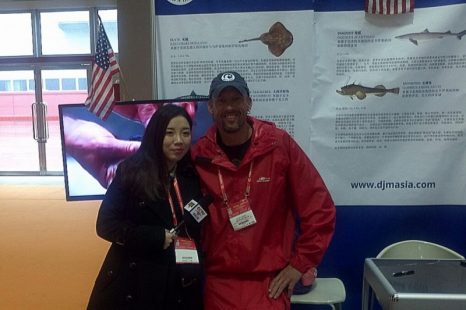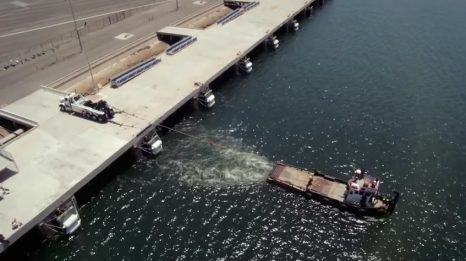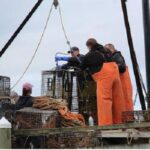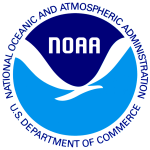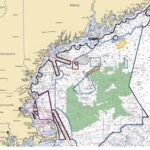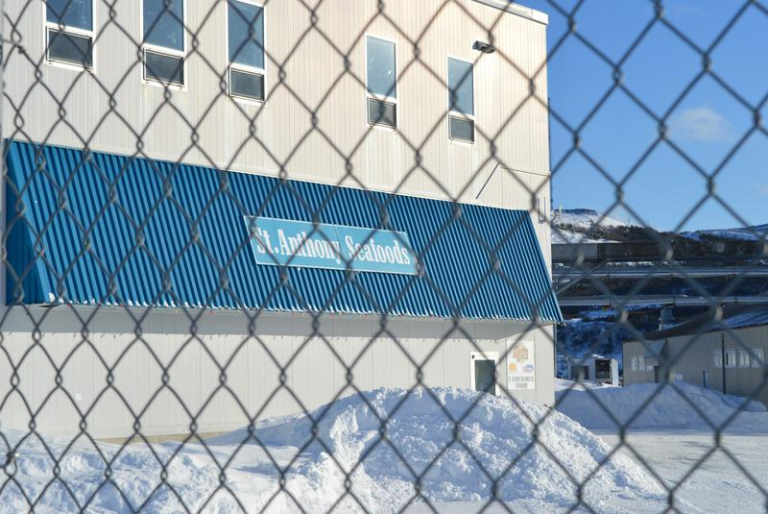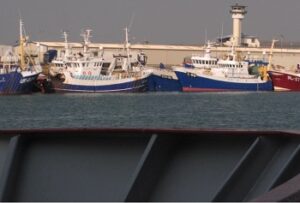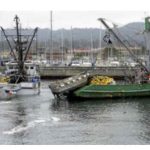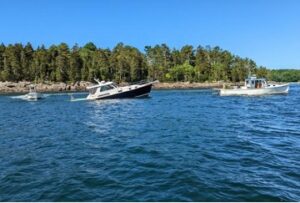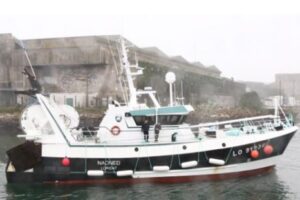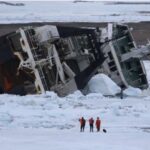Monthly Archives: September 2016
Satellite beams to remote clinic in Dutch Harbor
 The only clinic in one of the nation’s busiest commercial fishing ports is so remote that even conventional telemedicine for emergencies has been impossible for its limited staff – until last week. A new partnership with an Anchorage hospital is virtually beaming critical care doctors 800 miles away to the emergency room on the island that holds Dutch Harbor, the operations base for the Bering Sea crabbing fleet made famous by the Discovery Channel show “Deadliest Catch.” But instead of transmissions with fiber-optics, which are nowhere near isolated Unalaska Island, the team putting together the system is relying on satellite technology in what is believed to be a first in the country for telemedicine. The new connection is expected to boost outpatient care as needed by clinic staffers, including its two non-emergency doctors. The clinic, Iliuliuk Family and Health Services, brings to nine the number of providers served by the electronic intensive care unit at Anchorage’s Providence Alaska Medical Center. Read the story here 10:03
The only clinic in one of the nation’s busiest commercial fishing ports is so remote that even conventional telemedicine for emergencies has been impossible for its limited staff – until last week. A new partnership with an Anchorage hospital is virtually beaming critical care doctors 800 miles away to the emergency room on the island that holds Dutch Harbor, the operations base for the Bering Sea crabbing fleet made famous by the Discovery Channel show “Deadliest Catch.” But instead of transmissions with fiber-optics, which are nowhere near isolated Unalaska Island, the team putting together the system is relying on satellite technology in what is believed to be a first in the country for telemedicine. The new connection is expected to boost outpatient care as needed by clinic staffers, including its two non-emergency doctors. The clinic, Iliuliuk Family and Health Services, brings to nine the number of providers served by the electronic intensive care unit at Anchorage’s Providence Alaska Medical Center. Read the story here 10:03
Save wild salmon, support Bill C-228
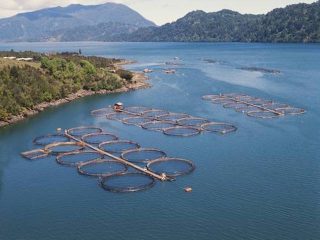 Early this year, Bill C-228 – a private member’s bill, was introduced to amend the Fisheries Act (closed containment aquaculture) to require finfish aquaculture for commercial purposes, in Canadian fisheries’ waters off the Pacific Coast, be carried out in closed-containment facilities. It also requires the Minister of Fisheries and Oceans to prepare, table in Parliament and implement a plan, to support the transition to the use of closed containment facilities, and to protect the jobs and financial security of workers in that sector. Click here to read Bill C-228 The bill is expected to go to second reading in the House of Commons this fall. Show your support for Bill C-228. Add your name to the e-petition. Link 08:55
Early this year, Bill C-228 – a private member’s bill, was introduced to amend the Fisheries Act (closed containment aquaculture) to require finfish aquaculture for commercial purposes, in Canadian fisheries’ waters off the Pacific Coast, be carried out in closed-containment facilities. It also requires the Minister of Fisheries and Oceans to prepare, table in Parliament and implement a plan, to support the transition to the use of closed containment facilities, and to protect the jobs and financial security of workers in that sector. Click here to read Bill C-228 The bill is expected to go to second reading in the House of Commons this fall. Show your support for Bill C-228. Add your name to the e-petition. Link 08:55
Fisherman names his newborn son Andrew after the shrimp boat and crew that saved his life
 A Murrells Inlet fisherman, who was pulled from the Atlantic Ocean by a nearby shrimp boat when his vessel capsized, became a new father Friday. And just as he promised, Adam Wiseman named his son, Andrew, after the crew that saved his life. “Baby Andrew made his entrance today weighing 10 pounds, 3 ounces,” Wiseman said on Friday. “True to my word (I) named (him) after a shrimp boat!” Wiseman and Cooper didn’t have time to call for help, but the Captain Andrew – Georgetown’s oldest wooden hull shrimp boat, still in service after 48 years – was shrimping nearby when Wiseman’s boat went under. Crew members saw Wiseman swimming for a floating ice box and set out to save the sinking vessel and its men. Baby Andrew came into the world at 7:41 a.m. on Friday. Ten fingers. Ten toes. Big smiles on a lot of faces. Read the story here 14:03
A Murrells Inlet fisherman, who was pulled from the Atlantic Ocean by a nearby shrimp boat when his vessel capsized, became a new father Friday. And just as he promised, Adam Wiseman named his son, Andrew, after the crew that saved his life. “Baby Andrew made his entrance today weighing 10 pounds, 3 ounces,” Wiseman said on Friday. “True to my word (I) named (him) after a shrimp boat!” Wiseman and Cooper didn’t have time to call for help, but the Captain Andrew – Georgetown’s oldest wooden hull shrimp boat, still in service after 48 years – was shrimping nearby when Wiseman’s boat went under. Crew members saw Wiseman swimming for a floating ice box and set out to save the sinking vessel and its men. Baby Andrew came into the world at 7:41 a.m. on Friday. Ten fingers. Ten toes. Big smiles on a lot of faces. Read the story here 14:03
So. You wanna be a “Wicked Tuna” Fisherman, eh? Stranded in Mattapoisett
 Anthony Rhodes has had a rough week. The 22-year-old West Virginian was left stranded in Mattapoisett with $60 to his name, a skateboard and a 31-foot fishing boat taking on water. After watching “Wicked Tuna,” a National Geographic Channel show about Gloucester blue fin fishermen, Rhodes knew that’s what he wanted to do. Bringing his uncle, a mechanic, with him, and using funds from an accident insurance settlement, Rhodes came to Massachusetts in search of a boat. He found a reasonably priced 1972 fishing boat in good condition, got his commercial fishing license and had Brownell Systems tow the boat to Mattapoisett. Then things started to tank. Rhodes said small amounts of money began to disappear, but he assumed his uncle, who he didn’t want to name, may have sent some of it home to his family. Not knowing how to use the bilge pumps, the boat began taking on water, something was draining the batteries and the starters weren’t working. “We have no idea about boats,” admitted Rhodes. Read the story here 13:35
Anthony Rhodes has had a rough week. The 22-year-old West Virginian was left stranded in Mattapoisett with $60 to his name, a skateboard and a 31-foot fishing boat taking on water. After watching “Wicked Tuna,” a National Geographic Channel show about Gloucester blue fin fishermen, Rhodes knew that’s what he wanted to do. Bringing his uncle, a mechanic, with him, and using funds from an accident insurance settlement, Rhodes came to Massachusetts in search of a boat. He found a reasonably priced 1972 fishing boat in good condition, got his commercial fishing license and had Brownell Systems tow the boat to Mattapoisett. Then things started to tank. Rhodes said small amounts of money began to disappear, but he assumed his uncle, who he didn’t want to name, may have sent some of it home to his family. Not knowing how to use the bilge pumps, the boat began taking on water, something was draining the batteries and the starters weren’t working. “We have no idea about boats,” admitted Rhodes. Read the story here 13:35
Celebrate the Legacy of Maine Lobster for National Lobster Day, Sept.25th 2016
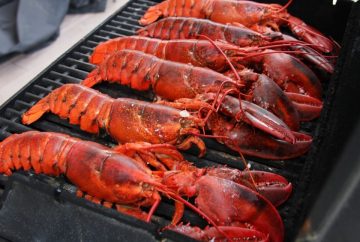 Americans adore live Maine lobster and will order it for special occasions, fly it in from Maine, and have given it important scenes in movies. Nostalgia for Mainers’ gruff independence, isolation, and willingness to brave dangerous seas in pursuit of Larry lobster is ingrained in our nation’s psyche. Plying the open seas at the mercy of nature is just part of the mystique, but it’s also real and our respect for the hard work the lobstermen do is genuine. Maine lobster fishing is a 400 year old bit of Americana that is as authentic today as it was in 1605 when the first recorded lobster catch was made by Captain George Waymouth and his crew aboard the boat the Archangel. They cast a net just off shore of the island of Monhegan and were pleasantly surprised to have pulled up a generous haul of fish and many “great lobsters.” Read the story here 12:48
Americans adore live Maine lobster and will order it for special occasions, fly it in from Maine, and have given it important scenes in movies. Nostalgia for Mainers’ gruff independence, isolation, and willingness to brave dangerous seas in pursuit of Larry lobster is ingrained in our nation’s psyche. Plying the open seas at the mercy of nature is just part of the mystique, but it’s also real and our respect for the hard work the lobstermen do is genuine. Maine lobster fishing is a 400 year old bit of Americana that is as authentic today as it was in 1605 when the first recorded lobster catch was made by Captain George Waymouth and his crew aboard the boat the Archangel. They cast a net just off shore of the island of Monhegan and were pleasantly surprised to have pulled up a generous haul of fish and many “great lobsters.” Read the story here 12:48
Governor Brown signs Whale Legislation, but the Enviros are never satisfied.
 California Gov. Jerry Brown announced Friday that he signed legislation meant to bring down the record numbers of whales getting caught in fishing gear meant for Dungeness crabs, causing unknown numbers of the entangled mammals to drown or starve. The Democratic governor approved the bill that allows fishermen to collect abandoned and lost crab pots — the cage-like contraptions used to catch the crustaceans — in the off-season for a bounty, paid for by those who lost the gear. Crab fishermen joined environmental groups in backing the legislation after federal agencies logged 61 reports of entangled whales off the West Coast last year,,, Conservation groups have urged state and federal agencies to do more, including closing some areas with high numbers of whales to crab fishing. Read the story here 12:32
California Gov. Jerry Brown announced Friday that he signed legislation meant to bring down the record numbers of whales getting caught in fishing gear meant for Dungeness crabs, causing unknown numbers of the entangled mammals to drown or starve. The Democratic governor approved the bill that allows fishermen to collect abandoned and lost crab pots — the cage-like contraptions used to catch the crustaceans — in the off-season for a bounty, paid for by those who lost the gear. Crab fishermen joined environmental groups in backing the legislation after federal agencies logged 61 reports of entangled whales off the West Coast last year,,, Conservation groups have urged state and federal agencies to do more, including closing some areas with high numbers of whales to crab fishing. Read the story here 12:32

Marine Safety: Man-Overboard Device for Immediate Alert and Fast Response
Professional mariners know the life-threatening hazards of falling overboard, but may not consider how critical the recovery window is, especially with a moving vessel. Compact and easily carried on a PFD, the ALERT2 Man-Overboard Alarm System from Emerald Marine Products immediately sets off a piercing audible alarm in the wheelhouse upon immersion, and can even be wired to stop an engine and/or set a waypoint on a chartplotter. At its most basic, the easily installed ALERT2 Man-Overboard Alarm System consists of the AT101 Transmitter and AR100 Receiver. Combined, the reliable and proven system provides crew with the critical extra seconds needed for a successful, locally managed man overboard (MOB) rescue operation. Read the rest here 09:52
Fishing With A Glock 9mm Handgun Underwater? These Lionfish Don’t Stand A Goddamn Chance
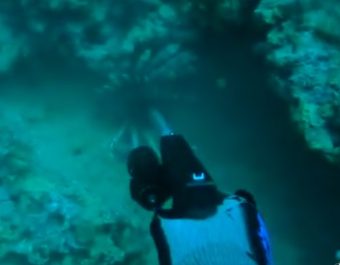 The grey line that divides hunting and fishing just grew even murkier after these bros demonstrated how fun and easy it is to go fishing/hunting for Lionfish, an extremely invasive species in Florida, using a Glock 9mm pistol. Lionfish were never meant to make it to the Gulf of Mexico waters, and there’s some discrepancy on how the fish were first introduced but in general it’s suggested a few of the fish were dumped into Florida waters during a hurricane back in the 90s and that handful of fish multiplied like rabbits. And as noted in this video, a SINGLE Lionfish consumes 80% of a coral reef’s edible baitfish within 5 weeks of arriving on that reef. They’re a goddamn terrorizing nuisance! 2 video’s, Read the rest here 08:42
The grey line that divides hunting and fishing just grew even murkier after these bros demonstrated how fun and easy it is to go fishing/hunting for Lionfish, an extremely invasive species in Florida, using a Glock 9mm pistol. Lionfish were never meant to make it to the Gulf of Mexico waters, and there’s some discrepancy on how the fish were first introduced but in general it’s suggested a few of the fish were dumped into Florida waters during a hurricane back in the 90s and that handful of fish multiplied like rabbits. And as noted in this video, a SINGLE Lionfish consumes 80% of a coral reef’s edible baitfish within 5 weeks of arriving on that reef. They’re a goddamn terrorizing nuisance! 2 video’s, Read the rest here 08:42
New York State Extends Commercial Black Sea Bass Season to October 13th
 Governor Andrew M. Cuomo announced that the state has extended the commercial black sea bass fishing season to October 13. Originally scheduled to close on September 17, the recent tropical storm contributed to a lower rate of black sea bass landings, making New York’s waters prime for an extended harvest season. After review of the most recent landings data, Department of Environmental Conservation and Division of Marine Resources staff determined that the commercial season could be extended. The current trip limit of 50 lbs. per day remains in effect. For certain commercially harvested species like black sea bass, annual commercial quota allocations are provided by the National Marine Fisheries Service and the Atlantic States Marine Fisheries Commission. Fishery management tools such as fishing trip limits and quota management plans have been implemented for quota managed species. The Department of Environmental Conservation continues to work closely with commercial fishermen to expand black sea bass harvest opportunities, and also has called for a revised, more equitable federal management strategy to improve the fishery experience. Link 19:06
Governor Andrew M. Cuomo announced that the state has extended the commercial black sea bass fishing season to October 13. Originally scheduled to close on September 17, the recent tropical storm contributed to a lower rate of black sea bass landings, making New York’s waters prime for an extended harvest season. After review of the most recent landings data, Department of Environmental Conservation and Division of Marine Resources staff determined that the commercial season could be extended. The current trip limit of 50 lbs. per day remains in effect. For certain commercially harvested species like black sea bass, annual commercial quota allocations are provided by the National Marine Fisheries Service and the Atlantic States Marine Fisheries Commission. Fishery management tools such as fishing trip limits and quota management plans have been implemented for quota managed species. The Department of Environmental Conservation continues to work closely with commercial fishermen to expand black sea bass harvest opportunities, and also has called for a revised, more equitable federal management strategy to improve the fishery experience. Link 19:06
Southeast commercial king crab season will remain closed
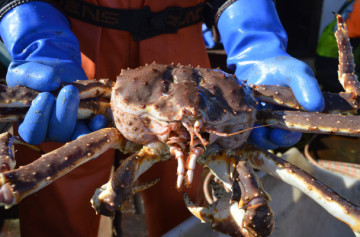 The fall red and blue king crab fishery has been opened only twice in the past decade, in 2005 and 2011.The numbers are still at historically low levels. Joe Stratman is the Alaska Department of Fish and Game’s lead crab biologist for Southeast. “The stock health in the survey areas ranged from below average to poor,” Stratman said. He and other biologists track two groups of king crab in Southeast: the legal biomass and mature biomass. Basically, the legal crabs are crabs that are big enough to be harvested in the commercial fishery. The mature biomass also includes crabs that are sexually mature but not big enough to be landed. “Both mature and legal surveyed biomasses declined on the average of 7 percent annually from 2001 to 2013,” Stratman said. Read the story here 18:06
The fall red and blue king crab fishery has been opened only twice in the past decade, in 2005 and 2011.The numbers are still at historically low levels. Joe Stratman is the Alaska Department of Fish and Game’s lead crab biologist for Southeast. “The stock health in the survey areas ranged from below average to poor,” Stratman said. He and other biologists track two groups of king crab in Southeast: the legal biomass and mature biomass. Basically, the legal crabs are crabs that are big enough to be harvested in the commercial fishery. The mature biomass also includes crabs that are sexually mature but not big enough to be landed. “Both mature and legal surveyed biomasses declined on the average of 7 percent annually from 2001 to 2013,” Stratman said. Read the story here 18:06

Hurting US Shark Fishermen: Enviro and recreational groups lobby Congress to pass the Shark Fin Trade Elimination Act of 2016
A collective composed of 80 nonprofit and conservation organizations penned and postmarked a letter to the United States Congress, asking that legislators pass the Shark Fin Trade Elimination Act of 2016, in effect banning the trade of shark fins in the United States. The Shark Fin Trade Elimination Act of 2016 is supported by more than 200 businesses, non-profits, associations and scientific organizations and would help save species of sharks from going extinct. Specific supporters include the American Sportfishing Association, the Recreational Fishing Alliance, the Billfish Foundation, Guy Harvey Foundation, the International Game Fish Association, Discovery Channel, Landry’s Inc, Lokai, Sea World and many others. NGO Oceana, who also supports the ban, said it conducted a poll that found eight in 10 Americans said they supported a national ban on the purchase and sale of shark fins. (I’d like to see that poll!) Read this. Click here 16:48
Remember the Labor Day Drunk Skipper Story? The dock repair estimate is in!
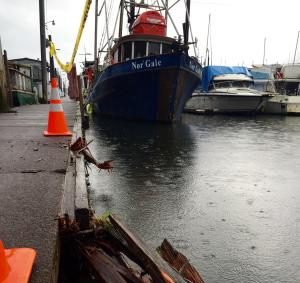 After assessing damage that an allegedly boozy boater caused when he crashed into a dock in Aurora Harbor on Labor Day, city officials have determined that repairs will likely cost about $80,000. Juneau Harbormaster Dave Borg said that PND Engineers examined the damaged dock after Darrin R. Hess, 51, crashed into it on Sept. 5 while driving the, a 43-foot commercial fishing vessel. Shortly after the collision, which left the dock in unstable condition, police arrested Hess and charged him with driving under the influence and refusing to take a breath test. Police took Hess to Lemon Creek Correctional Center after the crash. Before slamming into the dock, Hess played “bumper boats” with several other boats in the harbor at the time, Borg said shortly after the wreck. Neither Borg nor Rios know what the extent of the damage was to the boats Hess hit. Read the rest here 15:23
After assessing damage that an allegedly boozy boater caused when he crashed into a dock in Aurora Harbor on Labor Day, city officials have determined that repairs will likely cost about $80,000. Juneau Harbormaster Dave Borg said that PND Engineers examined the damaged dock after Darrin R. Hess, 51, crashed into it on Sept. 5 while driving the, a 43-foot commercial fishing vessel. Shortly after the collision, which left the dock in unstable condition, police arrested Hess and charged him with driving under the influence and refusing to take a breath test. Police took Hess to Lemon Creek Correctional Center after the crash. Before slamming into the dock, Hess played “bumper boats” with several other boats in the harbor at the time, Borg said shortly after the wreck. Neither Borg nor Rios know what the extent of the damage was to the boats Hess hit. Read the rest here 15:23
DFO makes two more major seizures – $90,000 worth of scallops and then lobster, a truck and a boat
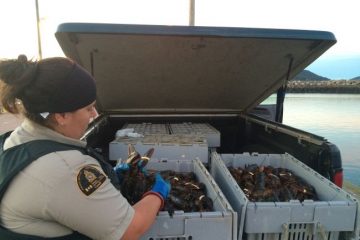 Fishery officers in Digby and Meteghan have made two more significant seizures. About noontime Sept. 21, Fishery Officers from Digby unloaded 160 bags of scallops at the Digby wharf. Fishery officer Jacklyn Titus told the Courier that the officers had conducted an inspection of a commercial scallop vessel on the Bay of Fundy and detected alleged violations. Titus says one individual was arrested and released and charges are pending. The 6,200 pounds of scallops were sold for $90,000, which will be held in trust pending the outcome of court proceedings. In a separate incident Sept. 22 in Weymouth, Fishery Officers arrested two individuals after an Aboriginal Food Fishery inspection. Officers seized 675 pounds of live lobster, a truck and small size fishing vessel. Includes a list of seizures, arrests and sentences from this summer. Read the rest here 14:40
Fishery officers in Digby and Meteghan have made two more significant seizures. About noontime Sept. 21, Fishery Officers from Digby unloaded 160 bags of scallops at the Digby wharf. Fishery officer Jacklyn Titus told the Courier that the officers had conducted an inspection of a commercial scallop vessel on the Bay of Fundy and detected alleged violations. Titus says one individual was arrested and released and charges are pending. The 6,200 pounds of scallops were sold for $90,000, which will be held in trust pending the outcome of court proceedings. In a separate incident Sept. 22 in Weymouth, Fishery Officers arrested two individuals after an Aboriginal Food Fishery inspection. Officers seized 675 pounds of live lobster, a truck and small size fishing vessel. Includes a list of seizures, arrests and sentences from this summer. Read the rest here 14:40
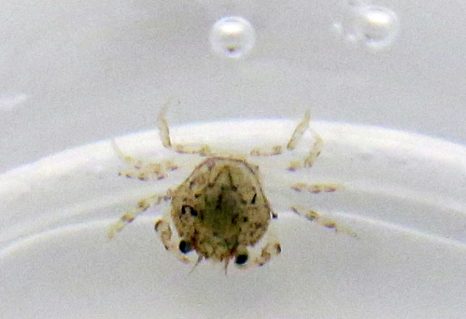
Dungeness crabs – Studies focus on acidic ocean impact
Millions of pounds of Dungeness crab are pulled from Pacific Northwest waters each year in a more than century-old ritual for commercial and recreational fishermen. But as marine waters absorb more carbon dioxide in the atmosphere, federal scientists are worried that the ocean’s changing chemistry may threaten the sweet-flavored crustaceans. So scientists with the NOAA Fisheries’ Northwest Fisheries Science Center are exposing tiny crab larvae to acidic seawater in laboratory experiments to understand how ocean acidification might affect one of the West Coast’s most lucrative fisheries. Research published this year found that Dungeness crab eggs and larvae collected from Puget Sound and exposed to higher levels of carbon dioxide — which increases ocean acidity — grew more slowly and larvae were more likely to die than those in less corrosive seawater. Read the rest here 14:14
Gulf council seeks input from fishermen for coral reef protections
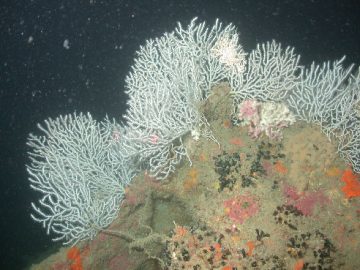 Fishermen will be able to provide input for coral protection areas in the at a workshop Monday hosted by the Gulf of Mexico Fishery Management Council. The meeting will be at 6 p.m. at the Courtyard by Marriott, 142 Library Drive, Houma. The council’s scientists recommended protecting 47 areas in the Gulf, but with the help of the Coral Advisory Panel and Shrimp Advisory Panel, the number has been narrowed to 15 priority areas. The meeting is to get feedback from fishermen who use bottom-contacting gear in federal waters in the Gulf before the council begins its public scoping process. Another meeting is to be held in Alabama. “Most of the areas, no one fishes in, but there is one area off the boot of Louisiana and several off Texas and Florida where there is some fishing activity. They want to get feedback from fishermen to see how much impact it would have to fisheries,” said Julie Falgout, seafood industry liaison with Louisiana SeaGrant. Read the rest here 11:08
Fishermen will be able to provide input for coral protection areas in the at a workshop Monday hosted by the Gulf of Mexico Fishery Management Council. The meeting will be at 6 p.m. at the Courtyard by Marriott, 142 Library Drive, Houma. The council’s scientists recommended protecting 47 areas in the Gulf, but with the help of the Coral Advisory Panel and Shrimp Advisory Panel, the number has been narrowed to 15 priority areas. The meeting is to get feedback from fishermen who use bottom-contacting gear in federal waters in the Gulf before the council begins its public scoping process. Another meeting is to be held in Alabama. “Most of the areas, no one fishes in, but there is one area off the boot of Louisiana and several off Texas and Florida where there is some fishing activity. They want to get feedback from fishermen to see how much impact it would have to fisheries,” said Julie Falgout, seafood industry liaison with Louisiana SeaGrant. Read the rest here 11:08
Maine aquaculture firm financed for land based California yellowtail farm
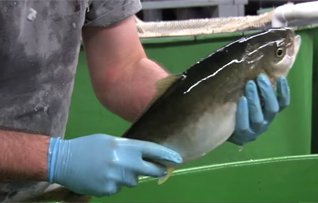 Maine, U.S.A.-based aquaculture firm Acadia Harvest has completed a new round that will give it USD 700,000 (EUR 623,000) to build out a land-based fish farm in Corea, Maine that will have a one-million pound capacity. The Company plans to open its plant in late 2017. The capital, which comes from a combination of private and institutional investment, will allow the company to fund land acquisition, development and operation permits and some build-out of the farm, which it said would focus on growing California yellowtail it will market as “Maine Hiramasa. Acadia Harvest is also researching the use of fish waste as nutrition for other commercial species, and in developing sustainable aquafeeds. Read the story here 10:25
Maine, U.S.A.-based aquaculture firm Acadia Harvest has completed a new round that will give it USD 700,000 (EUR 623,000) to build out a land-based fish farm in Corea, Maine that will have a one-million pound capacity. The Company plans to open its plant in late 2017. The capital, which comes from a combination of private and institutional investment, will allow the company to fund land acquisition, development and operation permits and some build-out of the farm, which it said would focus on growing California yellowtail it will market as “Maine Hiramasa. Acadia Harvest is also researching the use of fish waste as nutrition for other commercial species, and in developing sustainable aquafeeds. Read the story here 10:25
Fisherman must shell out $100,000 for three rock lobsters caught illegally in marine park
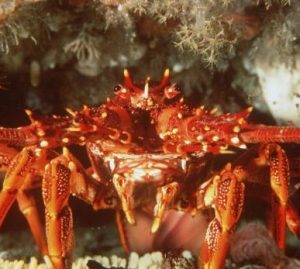 Two years ago, commercial fisherman Christopher George Hansen caught what might be the most expensive rock lobsters ever netted. The Tasmanian delicacies should have brought him about $200 at market; instead, he will pay close to $100,000 for the three lobsters. Hansen was this week censured by a Federal Court judge in Canberra for setting his lobster traps in part of the South-east Commonwealth Marine Reserves Network – a huge collection of protected marine areas that stretches from Tasmania in the south to South Australia, Victoria and New South Wales. Determined to send a message to other small-time fishermen, the federal government pursued Hansen, of Tasmania, through the courts in a two-year case that has racked up tens of thousands of dollars in legal costs. Read the story here 08:41
Two years ago, commercial fisherman Christopher George Hansen caught what might be the most expensive rock lobsters ever netted. The Tasmanian delicacies should have brought him about $200 at market; instead, he will pay close to $100,000 for the three lobsters. Hansen was this week censured by a Federal Court judge in Canberra for setting his lobster traps in part of the South-east Commonwealth Marine Reserves Network – a huge collection of protected marine areas that stretches from Tasmania in the south to South Australia, Victoria and New South Wales. Determined to send a message to other small-time fishermen, the federal government pursued Hansen, of Tasmania, through the courts in a two-year case that has racked up tens of thousands of dollars in legal costs. Read the story here 08:41
Fisherman appeals case shifting monitor costs
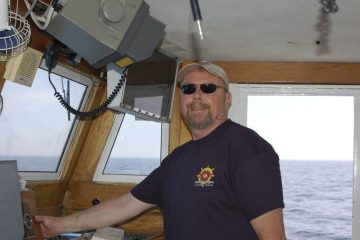 New Hampshire fisherman David Goethel is looking to the federal appeals court to overturn a federal judge’s ruling that allows NOAA Fisheries to impose the cost of at-sea monitoring on Northeast groundfish permit holders. Goethel, represented by lawyers from the Cause of Action watchdog group, has filed an appeal with the First Circuit Court of Appeals in Boston, hoping to reverse U.S. District Court Judge Joseph Laplante’s July 29 ruling in Goethel’s lawsuit that granted summary judgment to the federal government. “NOAA lacks the authority to require industry funding for at-sea monitors. Its decision to do so violates federal statutes and the Constitution,” said Alfred Lechner Jr., president and chief executive officer of Cause of Action as well as a former federal judge. “Our clients had a legal right to their day in court at the time they filed suit. The decision holding otherwise is an error. An appeal from the decision of the district court has been filed.” Read the story here 08:13
New Hampshire fisherman David Goethel is looking to the federal appeals court to overturn a federal judge’s ruling that allows NOAA Fisheries to impose the cost of at-sea monitoring on Northeast groundfish permit holders. Goethel, represented by lawyers from the Cause of Action watchdog group, has filed an appeal with the First Circuit Court of Appeals in Boston, hoping to reverse U.S. District Court Judge Joseph Laplante’s July 29 ruling in Goethel’s lawsuit that granted summary judgment to the federal government. “NOAA lacks the authority to require industry funding for at-sea monitors. Its decision to do so violates federal statutes and the Constitution,” said Alfred Lechner Jr., president and chief executive officer of Cause of Action as well as a former federal judge. “Our clients had a legal right to their day in court at the time they filed suit. The decision holding otherwise is an error. An appeal from the decision of the district court has been filed.” Read the story here 08:13
Lobster boat arsonist gets 7 years for ‘simply crazy conduct’
 Jeremy James Eaton, 40, pleaded guilty in March to setting ablaze another man’s lobster boat on April 16, 2014. The vessel was destroyed, according to court documents. “To burn a lobsterman’s boat is to destroy his livelihood,” U.S. District Judge John Woodcock said in imposing the sentence recommended by the federal prosecutor. “You really struck at the heart of your community.” In addition to prison time, Woodcock sentenced Eaton to three years of supervised release and ordered him to pay $25,000 in restitution to the firm that insured the boat. Eaton’s conduct was described Thursday by Assistant U.S. Attorney James Moore as a “personal vendetta” against the boat owner with whom Eaton had a “long history of animosity.” A more specific motive has not been made public. Read the story here 19:26
Jeremy James Eaton, 40, pleaded guilty in March to setting ablaze another man’s lobster boat on April 16, 2014. The vessel was destroyed, according to court documents. “To burn a lobsterman’s boat is to destroy his livelihood,” U.S. District Judge John Woodcock said in imposing the sentence recommended by the federal prosecutor. “You really struck at the heart of your community.” In addition to prison time, Woodcock sentenced Eaton to three years of supervised release and ordered him to pay $25,000 in restitution to the firm that insured the boat. Eaton’s conduct was described Thursday by Assistant U.S. Attorney James Moore as a “personal vendetta” against the boat owner with whom Eaton had a “long history of animosity.” A more specific motive has not been made public. Read the story here 19:26
Didn’t the train leave the station? FFAW will try to do a better job at communicating with members
 As the FFAW (Fish, Food and Allied Workers) union faces an exodus of members, staff representative Jason Spingle said the union is taking the issue very seriously. FISH-NL, the Federation of Independent Sea Harvesters of Newfoundland and Labrador — an effort of former MP Ryan Cleary and fishermen Jason Sullivan and Richard Gillett — held meetings in Corner Brook and Clarenville this week to gauge and drum up support for the new union. Spingle, who works out of the FFAW’s Corner Brook office representing members from the west coast, Northern Peninsula and Labrador, said he’s seen the coverage of the meetings and recognized a lot of the faces of those who are supporting FISH-NL. With around 2,000 members in the region though, Spingle said there were a lot of people who were not at the meetings. Read the story here 17:22
As the FFAW (Fish, Food and Allied Workers) union faces an exodus of members, staff representative Jason Spingle said the union is taking the issue very seriously. FISH-NL, the Federation of Independent Sea Harvesters of Newfoundland and Labrador — an effort of former MP Ryan Cleary and fishermen Jason Sullivan and Richard Gillett — held meetings in Corner Brook and Clarenville this week to gauge and drum up support for the new union. Spingle, who works out of the FFAW’s Corner Brook office representing members from the west coast, Northern Peninsula and Labrador, said he’s seen the coverage of the meetings and recognized a lot of the faces of those who are supporting FISH-NL. With around 2,000 members in the region though, Spingle said there were a lot of people who were not at the meetings. Read the story here 17:22
Bristol Bay Sockeye output blows previous seasons out of water
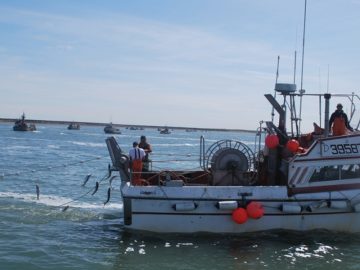 For the third season in a row, the world’s largest sockeye salmon run featured above-average numbers, a late run, and sub-average prices for the fishermen. Unlike last year, however, the fishermen’s pockets so far aren’t as empty in 2016, and the overall market outlook seems to have improved. In terms of output, the summer of 2016 blew previous sockeye seasons out of the water, second only to last year’s run of 59 million. “The 2016 inshore Bristol Bay sockeye salmon run of 51.4 million fish ranks 2nd out of the last 20 years (1996–2015) and was 46 percent above the 35.1 million average run for the same period,” according to a season summary from the Alaska Department of Fish and Game. Along with being above average run, the 2016 Bristol Bay sockeye harvest surpassed ADFG forecasts. “The 37.3 million sockeye salmon commercial harvest was 26 percent above the 29.5 million preseason forecast,” the summary reads. “All escapement goals were met or exceeded, with a total sockeye salmon escapement of 14.1 million fish. A total of 29,545 chinook salmon were harvested in Bristol Bay in 2016.” Read the story here 17:03
For the third season in a row, the world’s largest sockeye salmon run featured above-average numbers, a late run, and sub-average prices for the fishermen. Unlike last year, however, the fishermen’s pockets so far aren’t as empty in 2016, and the overall market outlook seems to have improved. In terms of output, the summer of 2016 blew previous sockeye seasons out of the water, second only to last year’s run of 59 million. “The 2016 inshore Bristol Bay sockeye salmon run of 51.4 million fish ranks 2nd out of the last 20 years (1996–2015) and was 46 percent above the 35.1 million average run for the same period,” according to a season summary from the Alaska Department of Fish and Game. Along with being above average run, the 2016 Bristol Bay sockeye harvest surpassed ADFG forecasts. “The 37.3 million sockeye salmon commercial harvest was 26 percent above the 29.5 million preseason forecast,” the summary reads. “All escapement goals were met or exceeded, with a total sockeye salmon escapement of 14.1 million fish. A total of 29,545 chinook salmon were harvested in Bristol Bay in 2016.” Read the story here 17:03
Obama, Clinton only impede private industry
 I am writing in response to the Sept. 17 news story, “Fishermen upset over the Atlantic monument creation.” The article quotes Grant Moore, president of the Atlantic Offshore Lobstermen’s Association, who says: “Basically with the stroke of a pen, President Obama put fishermen and their crews out of work and harmed all the shore-side businesses that support the fishing industry. In last past eight years, the Democrats have attempted to restrict jobs, put out of work or demonize oil and gas pipeline workers, coal miners, power plant workers, truckers, police officers, small business owners and their employees, and ranchers and farmers. If Hillary Clinton keeps her promise to be Obama’s third term, what is next — health insurance workers, pharmaceutical workers, seafood restaurant workers, bankers, or anyone who is not in a politically correct group? Who is going to be left working to pay for the ever-growing entitlements? The only sure job in the Clinton administration would be Classified Email Reviewer, with no security clearance required. Gary Sahakian, Johnston R.I. Link 16:14
I am writing in response to the Sept. 17 news story, “Fishermen upset over the Atlantic monument creation.” The article quotes Grant Moore, president of the Atlantic Offshore Lobstermen’s Association, who says: “Basically with the stroke of a pen, President Obama put fishermen and their crews out of work and harmed all the shore-side businesses that support the fishing industry. In last past eight years, the Democrats have attempted to restrict jobs, put out of work or demonize oil and gas pipeline workers, coal miners, power plant workers, truckers, police officers, small business owners and their employees, and ranchers and farmers. If Hillary Clinton keeps her promise to be Obama’s third term, what is next — health insurance workers, pharmaceutical workers, seafood restaurant workers, bankers, or anyone who is not in a politically correct group? Who is going to be left working to pay for the ever-growing entitlements? The only sure job in the Clinton administration would be Classified Email Reviewer, with no security clearance required. Gary Sahakian, Johnston R.I. Link 16:14
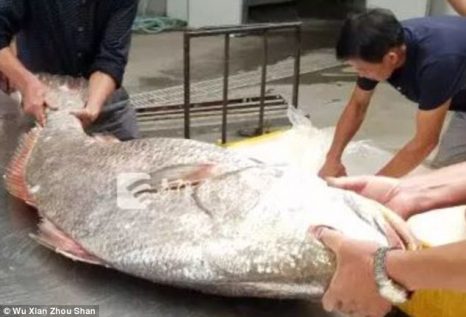
Chinese fishermen net rare croaker ‘as rare as a panda’ and are selling it for 1.1 million yuan ($165,093US)
A group of Chinese fishermen are expecting to sell a huge croaker they caught for 1.1 million yuan ($165,093 USD). The men were surprised to spot the fish in the waters off Daishan near the city of Zhoushan, east China, on September 18, reported People’s Daily Online. Weighing 105 pounds and measuring 5ft 2in in length, the fish was so large it took four to five men to drag it onto the boat. The fish is reportedly a rare type of croaker, known to the local fishermen as the ‘Zhoushan big fish’. ‘The fish is as rare as panda,’ said Chen, relative of one of the trawlermen who caught the fish. Chen added: ‘I haven’t seen this fish for over 20 years. It’s so blessed to catch it. Even veteran fisherman may not have that chance.’ After being caught, the fish was put in the freezer and shipped to nearby Dinghai District. According to them, the fish’s swim bladder is especially valuable as it is believed to be a great source of protein and fat. The organ is frequently used by Chinese medicine practitioners to cure heart and lung ailments. Link 15:52
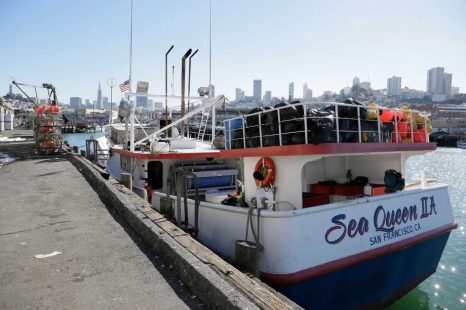
Fishermen Who Fled Slavery in San Francisco Sue Boat Owner
Two Indonesian fishermen who escaped slavery aboard a Honolulu-based tuna and swordfish vessel when it docked at San Francisco’s Fisherman’s Wharf are suing the boat’s owner for tricking them into accepting dangerous jobs they say they weren’t allowed to leave. Attorneys for Abdul Fatah and Sorihin, who uses one name, say in a lawsuit filed in federal court Thursday that they were recruited in Indonesia seven years ago to work in Hawaii’s commercial fishing fleet without realizing they would never be allowed onshore. They have since been issued visas for victims of human trafficking and are living in the San Francisco area. The lawsuit alleges that San Jose, California, resident Thoai Nguyen, owner and captain of the Sea Queen II, forced Sorihin and Fatah to work up to 20-hour shifts, denied them medical treatment and demanded thousands of dollars if they wanted to leave before their contracts expired. Nguyen did not return calls seeking comment. Read the story here 15:05
Mass. lobstermen press pols to ease access to restricted area protecting endangered whales
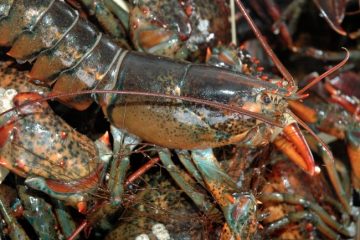 Bay State lobstermen want federal fishing regulators to work with them to ease restrictions on lobstering in Massachusetts Bay and two areas east of the South Shore, proposing new safety measures that would allow boats to continue to operate while also protecting endangered whales. Local lobstermen and leaders of the South Shore Lobster Fisherman’s Association met Wednesday at the State House with legislators and representatives for members of the state’s Congressional delegation to discuss their pitch for preventing whale entanglements without having to remove all traps from February through April. John Haviland, president of the association who lobsters out of Green Harbor, said lobstermen are proposing to open three sections – representing a fraction of the larger 2,965 square nautical mile restricted area – for parts of the three-month ban as long as traps are retrofitted with sleeves for their vertical lines that would break every 40 feet under 1,575 pounds of pressure. Haviland said the line-safety improvement proposal is based on research done by the New England Aquarium and Wood’s Hole Oceanographic Institute showing that right whales would be as much as 85 percent less likely to become entangled in lines engineered to break at those specifications. Read the story here 11:24
Bay State lobstermen want federal fishing regulators to work with them to ease restrictions on lobstering in Massachusetts Bay and two areas east of the South Shore, proposing new safety measures that would allow boats to continue to operate while also protecting endangered whales. Local lobstermen and leaders of the South Shore Lobster Fisherman’s Association met Wednesday at the State House with legislators and representatives for members of the state’s Congressional delegation to discuss their pitch for preventing whale entanglements without having to remove all traps from February through April. John Haviland, president of the association who lobsters out of Green Harbor, said lobstermen are proposing to open three sections – representing a fraction of the larger 2,965 square nautical mile restricted area – for parts of the three-month ban as long as traps are retrofitted with sleeves for their vertical lines that would break every 40 feet under 1,575 pounds of pressure. Haviland said the line-safety improvement proposal is based on research done by the New England Aquarium and Wood’s Hole Oceanographic Institute showing that right whales would be as much as 85 percent less likely to become entangled in lines engineered to break at those specifications. Read the story here 11:24
Extremist Anti Canadian seal hunt doc to be seen by Discovery’s millions of viewers
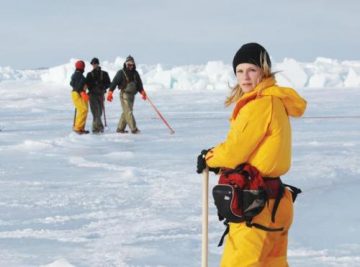 The feature documentary Huntwatch, narrated by actor Ryan Reynolds and produced by the International Fund for Animal Welfare (IFAW), will be airing on Thursday, September 22 in the United States on Discovery Impact at 10 pm, and in Canada on Animal Planet at 11 pm ET. The film follows the history of IFAW’s campaign against Canada’s East Coast commercial harp seal hunt, highlighting the unwavering courage and determination of our founder, Brian Davies. Blending never-before-seen archival footage with more recent interviews, the documentary reveals not only the cruelty and controversy that is commonly associated with the seal hunt, but also shows the beauty and majesty of harp seals in their natural environment, the historical importance of the hunt in eastern Canada, and the political machinations that allow it to continue today. Well. Cumbia! Read the rest here 10:27
The feature documentary Huntwatch, narrated by actor Ryan Reynolds and produced by the International Fund for Animal Welfare (IFAW), will be airing on Thursday, September 22 in the United States on Discovery Impact at 10 pm, and in Canada on Animal Planet at 11 pm ET. The film follows the history of IFAW’s campaign against Canada’s East Coast commercial harp seal hunt, highlighting the unwavering courage and determination of our founder, Brian Davies. Blending never-before-seen archival footage with more recent interviews, the documentary reveals not only the cruelty and controversy that is commonly associated with the seal hunt, but also shows the beauty and majesty of harp seals in their natural environment, the historical importance of the hunt in eastern Canada, and the political machinations that allow it to continue today. Well. Cumbia! Read the rest here 10:27
Nova Scotia fishermen are concerned about proposed Marine Protected Areas (they should be!)
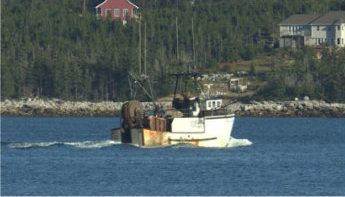 The federal Department of Fisheries and Oceans wants to double the number of marine protected areas around Nova Scotia next year. DFO is holding a series of consultation meetings with the public to get feedback to the idea. It identified 52 special areas within the 475,000-square-kilometre region along Nova Scotia’s Atlantic coast and in the Bay of Fundy that are in the running for the designation including the Sambro Ledges, Port Joli and Eastern Shore islands. Marty King, an oceans biologist with DFO, said the government will choose at least two areas to protect by next spring. But the proposed protections have fishermen worried. “They feel like they’re under siege sometimes,” said Peter Connors, president of the Eastern Shore Fishermen Protective Association. “I’m quite concerned.” “There’s fear of exclusion from the fish,” said Connors. “I think there’s a certain amount of evidence that that will take place.” Read the rest here 09:21
The federal Department of Fisheries and Oceans wants to double the number of marine protected areas around Nova Scotia next year. DFO is holding a series of consultation meetings with the public to get feedback to the idea. It identified 52 special areas within the 475,000-square-kilometre region along Nova Scotia’s Atlantic coast and in the Bay of Fundy that are in the running for the designation including the Sambro Ledges, Port Joli and Eastern Shore islands. Marty King, an oceans biologist with DFO, said the government will choose at least two areas to protect by next spring. But the proposed protections have fishermen worried. “They feel like they’re under siege sometimes,” said Peter Connors, president of the Eastern Shore Fishermen Protective Association. “I’m quite concerned.” “There’s fear of exclusion from the fish,” said Connors. “I think there’s a certain amount of evidence that that will take place.” Read the rest here 09:21
Ninth Circuit Sides With Cook Inlet Fishermen
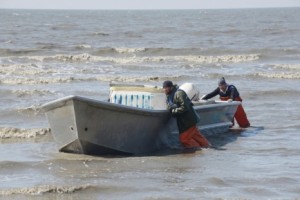 The Ninth Circuit ruled Wednesday that the federal government must manage fisheries in federal waters that require conservation, unless a fishery-management plan cedes control to a state. Reversing a decision from the Alaska Federal Court, the Ninth Circuit panel held that the National Marine Fisheries Service is required by the Magnuson-Stevens Fishery Conservation and Management Act to include the Cook Inlet in its fishery-management plan. It may not hand over control of the inlet to the state of Alaska without first drawing up a plan, according to the 20-page ruling. The North Pacific Fishery Management Council has jurisdiction over Cook Inlet. In 2011, the Council voted and passed Amendment 12 to remove the net-fishing areas from its plan, arguing that the plan was vague on management goals and that the state was the most appropriate management authority. However, the amendment was opposed by the United Cook Inlet Drift Association and the Cook Inlet Fishermen’s Fund, two groups of commercial fishermen. However, the amendment was opposed by the United Cook Inlet Drift Association and the Cook Inlet Fishermen’s Fund, two groups of commercial fishermen. They argued that the state’s failure to deal with carnivorous northern pike and its improper escapement management have contributed to a 51 percent reduction in the sockeye salmon catch since 1981. Read the story here 08:14
The Ninth Circuit ruled Wednesday that the federal government must manage fisheries in federal waters that require conservation, unless a fishery-management plan cedes control to a state. Reversing a decision from the Alaska Federal Court, the Ninth Circuit panel held that the National Marine Fisheries Service is required by the Magnuson-Stevens Fishery Conservation and Management Act to include the Cook Inlet in its fishery-management plan. It may not hand over control of the inlet to the state of Alaska without first drawing up a plan, according to the 20-page ruling. The North Pacific Fishery Management Council has jurisdiction over Cook Inlet. In 2011, the Council voted and passed Amendment 12 to remove the net-fishing areas from its plan, arguing that the plan was vague on management goals and that the state was the most appropriate management authority. However, the amendment was opposed by the United Cook Inlet Drift Association and the Cook Inlet Fishermen’s Fund, two groups of commercial fishermen. However, the amendment was opposed by the United Cook Inlet Drift Association and the Cook Inlet Fishermen’s Fund, two groups of commercial fishermen. They argued that the state’s failure to deal with carnivorous northern pike and its improper escapement management have contributed to a 51 percent reduction in the sockeye salmon catch since 1981. Read the story here 08:14






